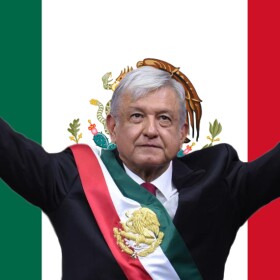
History Talk from Origins
Smart conversations about today’s most interesting topics - a history podcast for everyone, produced by Ohio State's Origins: Current Events in Historical Perspective.
Latest Episodes
-
In early June 2019, residents of Hong Kong took to the streets to protest proposed legislation by the Hong Kong government that would enable extradition…
-
Voting is perhaps the most fundamental act of democratic citizenship. In a democracy, our political leaders receive their mandate, and the system itself…
-
Andrés Manuel López Obrador (a.k.a.AMLO) rode to the presidency in 2018 by promising Mexico "juntos haremos historia" ("together we will make history").…
-
In April 2019, four months of sustained protests throughout Sudan culminated in the ousting of President Omar al-Bashir, who had ruled the country since…
-
After more than four years of war, Yemen teeters on the brink of what the European Union has described as “the world's largest humanitarian crisis.”…
-
Over the last two decades, the Catholic Church has been buffeted by a series of sexual abuse scandals. High-profile investigative reports have uncovered…
-
In November 2018, a report commissioned by French President Emannuel Macron called for artifacts taken to France during the heyday of European imperialism…
-
In the West, many think of HIV/AIDS as a phenomenon that began in the 1980s, when news first broke of a mysterious and highly deadly disease. In reality,…
-
In October 2018, Brazil elected far-right ideologue Jair Bolsonaro to the presidency. Bolsonaro, a retired military officer often called the "Trump of the…
-
Existential fears of “losing” what is seen as “Western Civilization” have animated many within what is considered the alt-right. However, the valorization…










